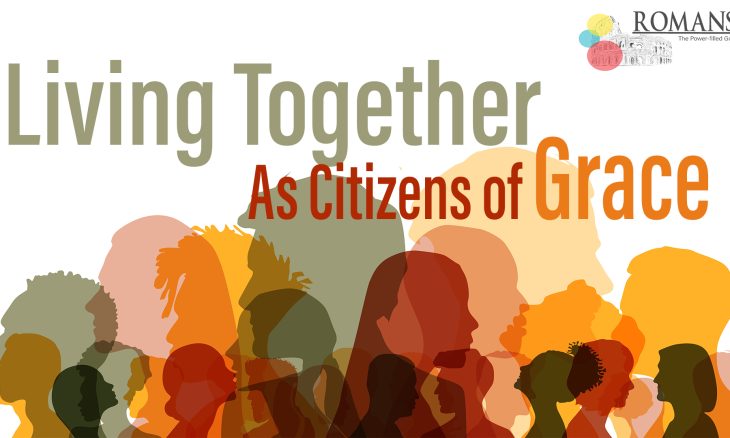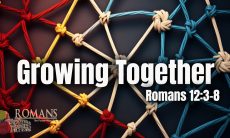Conflict in the church is nothing new. From the first century to today, believers have disagreed about worship practices, cultural traditions, and personal convictions. In Rome, it was food and sacred days. Today, it might be worship style, politics, schooling, or how we spend time and money.
Paul’s concern in Romans 14 isn’t that Christians never disagree; it’s how we disagree—so that Jesus remains Lord and His people remain loved. He gives four anchors to hold the church together:
1) Welcome One Another—Even in Differences (Rom. 14:1–6)
“Welcome… not to quarrel over opinions.” The “weak” are not lesser believers; their consciences are more sensitive in certain practices. One eats meat, another abstains; one marks special days, another treats every day alike. Both can honor the Lord if done in gratitude and faith.
Practices
- Hold firm where Scripture is clear; show grace where it allows freedom.
- Replace “fixing people” with humble fellowship; listen before labeling.
- Make room at the table for different temperaments, histories, and consciences.
Picture it: Two worshipers—one hands raised, one hands folded—both honoring Jesus, neither comparing.
2) Remember Who the Judge Is (Rom. 14:7–12)
We belong to Christ in life and death. Judgment is God’s seat, not ours. Every believer will give a personal account to Him.
Heart checks
- Before correcting, ask: Am I helping in love—or trying to sit in God’s chair?
- Remove your “log” before addressing someone else’s “speck” (Matt. 7:1–5).
- Let Christ’s ownership settle turf wars: “It’s His ball; He brought it.”
3) Pursue Peace, Not Stumbling Blocks (Rom. 14:13–16, 20–21)
Decide never to put a stumbling block before a brother or sister. In Christ, nothing is unclean in itself, yet love limits liberty. If my freedom confuses or wounds a weaker conscience, love chooses restraint.
Practices
- Ask, “Will this help them follow Jesus—or make it harder?”
- Dim your high beams: what helps you might blind someone coming the other way.
- Trade rights for relationship (1 Cor. 8:9; Gal. 5:13).
4) Keep the Kingdom Priority (Rom. 14:17–19)
“The kingdom of God is not eating and drinking but righteousness, peace, and joy in the Holy Spirit.” Chase what makes for peace and mutual upbuilding.
Practices
- Pray, “Lord, give me words that build faith, not win arguments.”
- Celebrate evidences of grace you see in others.
- Make encouragement your reflex; make controversy your last resort.
Conclusion: Unity Isn’t Uniformity—It’s Charity (love)
Romans 14 lifts our eyes: welcome as you were welcomed, relinquish the judge’s chair, limit liberty by love, and keep kingdom priorities central. The family photo album of God’s church need not show perfection—but it should radiate righteousness, peace, and Spirit-given joy.
This week
- Confess one judgmental reflex and replace it with prayer.
- Choose one concrete way to limit a freedom for another’s good.
- Pursue one conversation aimed at peace and mutual upbuilding.
In essentials, unity. In non-essentials, liberty. In all things, charity.















